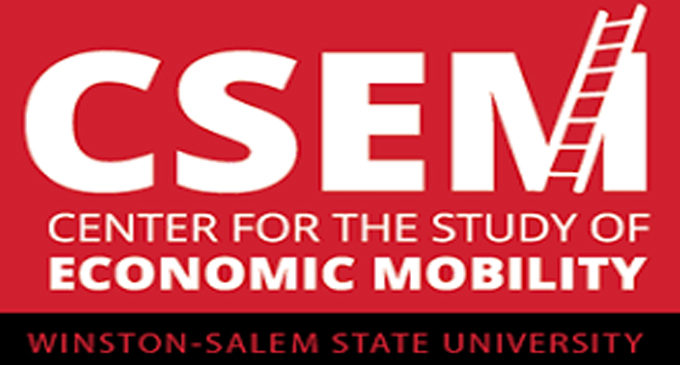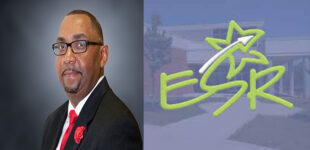Starting early with financial literacy

By John Railey
David Moore, who has seen the effects of generational poverty in East Winston close up, is determined to reverse it. His latest step is an initiative that gives elementary and-middle school girls an introduction to financial literacy.
“I want them to understand why they should have a bank statement and keep up with their money,” Moore said. “Financial education, how to use their money and build credit, so that, one day, they can buy their own homes. They’re learning financial responsibility.”
Moore has initiated financial education through his Project M.O.O.R.E, which is located just off Martin Luther King Drive. Project M.O.O.R.E is supported by Winston-Salem State University’s Center for the Study of Economic Mobility (CSEM), which shares David Moore’s emphasis on reversing generational poverty, including through homeownership.
Financial literacy is key to homeownership, say advocates for homebuyers. Though they aren’t publicized enough, there are numerous local opportunities for financial education for adults. Economic and personal finance are now taught in public high schools, but Project M.O.O.R.E.’s initiative reaches younger students.
Moore realized the need last fall as he started an after-school initiative for girls, Tiny Creators, at Project M.O.O.R.E. The work dovetails with Project M.O.O.R.E.’s overall mission, that of helping at-risk youth by starting them in training for careers in music, cosmetology, and barbering. Lately, it has also been concentrating on reducing gun violence, aligning with CSEM in that respect. Moore launched Tiny Creators in response to that violence, to give girls in the program, ranging in age from 11 to 14, a safe place to learn and play.
Tiny Creators encourages educational achievement and teaches basic cosmetology. As an incentive, Moore promised each girl who makes the honor roll $100. “These girls have bonded, helping each other out with homework,” he said. “In the fall semester, six of the 10 girls in the program made the honor roll.”
Moore was proud. He also saw an opportunity. He had already been giving the girls $50 stipends every two weeks for participating in the program and set them up with bank accounts at the Winston-Salem Federal Credit Union. As the girls deposited portions of their $100 awards for making the honor roll, Moore decided to ramp up the financial education part, enlisting Antonia Imes and Rovia Hall for the hands-on lessons.
“We’re teaching them how to budget their money,” Imes said. “They have accounts that they put money into, extra for honor students, so they can save. So they’ll have money for college and houses, whatever they need.”
Hall said: “We teach them how to spend money wisely and to save money.”
Imes met David Moore through her work in trying to reduce gang and gun violence. There were 44 homicides in Winston-Salem last year, a 52 % increase from the 29 homicides in 2020, the Winston-Salem Journal recently reported. Most of last year’s homicides involved guns, and there were more than a hundred assaults involving guns.
Project M.O.O.R.E and CSEM realize that gun violence, in addition to its heavy human costs, also has heavy financial costs. Students and parents stressed from it may find it hard to concentrate in school and at work. As CSEM Associate Director Alvin Atkinson has said, “Feeling safe at home should be a given, not a luxury for those in well-resourced neighborhoods.”
CSEM has helped lead the Winston-Salem relaunch of the My Brother’s/Sister’s Keeper initiative, of which the group Action 4 Equity is becoming community coordinator. The initiative will join in the effort to reduce gun violence. A new grassroots initiative, The Women’s Gun Violence Prevention Team, is also on the case. The Forsyth County Cure Violence Program, by way of coordinating, is surveying local nonprofits on their anti-violence efforts.
It all ties into economic mobility and youth, and financial education can be an important part of that.
“I feel like this program is so much needed for girls,” Imes said.” To see it grow, you have to invest in what you believe: children.”
John Railey, raileyjb@gmail.com, is the writer-in-residence for CSEM, www.wssu.edu/csem.















